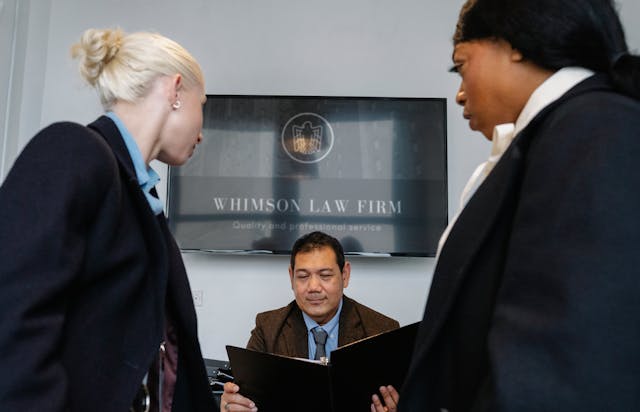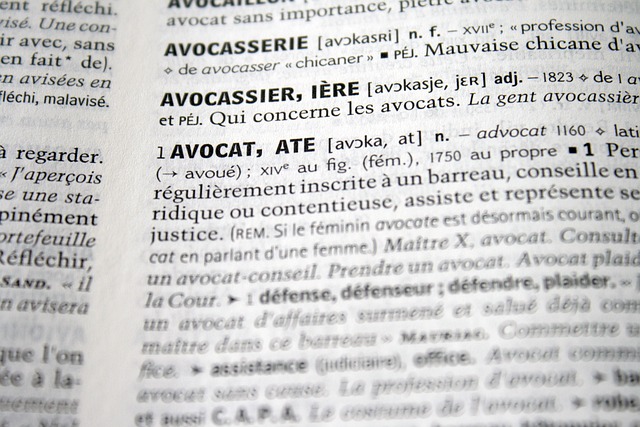Rapid Translate Team
When submitting foreign official documents to government agencies, much focus is often placed on their authenticity. Hence, it is often necessary to work with a sworn translator — an officially recognized translator.
While sworn translators are like any other professionals, they have formal recognition from government authorities. Thus, they can translate documents and validate them with an official seal.
Read this article to discover when you need one and how to hire them!

Table of Contents
Who Is a Sworn Translator?
A sworn translator is a formally recognized, typically government-appointed, who provides legally binding translations. While this title’s meaning may differ in different countries, these professionals play a similar role.
They have the legal authority to translate official documents on the government’s behalf. They also hold official seals or stamps indicating translated documents’ validity and accuracy. To hold this title, sworn translators swear oaths before courts.
Becoming a sworn translator does not necessarily mean the professional is one of the best. Rather, they hold a title that allows them to perform specific duties. You can always meet great translators who may or may not be sworn in.

When Do You Need Sworn Translation?
You’ll need a sworn translation when working with official or legal documents in countries that mandate it. These translations from sworn translators are legally binding.
As a result, courts, government agencies, education institutions, and official bodies accept them. Thus, here are the situations where you’ll need a sworn translation.
1. During Legal Proceedings
Sworn translations are necessary for legal proceedings. This type of translation is important for translating contracts, affidavits, legal opinions, court rulings, and other court-related documents.
This is because they help all the involved parties, including the judges, lawyers, and litigants, understand the legal requirements. Thus, they help maintain fairness and clarity during the process.
Also, translations from sworn professionals come with an extra layer of reliability and authenticity. As a result, most legal institutions consider them valid. Your legal translations come from sworn legal translators in countries like Spain, Canada, Poland, and Brazil.
2. For Your Academic Documents
When pursuing academic certifications in countries with different official languages, you’ll need sworn translations of academic documents. Most institutions require this translation for diplomas, academic transcripts, degrees, and research publications.
These translations help foreign colleges or universities more adequately access your applications.
Also, if you have academic qualifications that are not legally recognized in another country, sworn translations can help you validate them.
Of course, institutions rely majorly on your translated documents to access your educational background and qualifications. Hence, they insist that these translations come from sworn professional translators to ensure a smooth evaluation process.
3. When Sending Your Immigration Application
Usually, immigration processes require sworn translations of the documents needed for your application. This is because immigration officials must clearly understand the content of your documents during the process.
You must get sworn translations for birth certificates, passports, employment contracts, marriage certificates, financial statements, and other related documents. Because these translations include the translator’s seal or stamp, they prevent delays and denials.
Since sworn translators typically understand the application processes better, they also help you go through the process more easily. They also ensure compliance and help maintain adequate communication with authorities in the country you’re visiting.
4. For Administrative and Official Activity
Sworn translations are also compulsory when submitting documents in a foreign language for administrative and official purposes. This is a requirement if you’re sending an administrative document to public institutions, government agencies, or other governmental bodies.
This includes regulatory applications, official certificates, permits, licenses, and contracts. This type of translation helps to make these documents legally recognized and understood by the relevant administrative institutions.

How To Be a Sworn Translator in 4 Steps
Becoming a sworn translator requires exceptional language skills. Due to the accompanying responsibility, you must also have a significant understanding of legal and official documents. If you’re unsure how to proceed, here is how to be a sworn translator.
1. Become a Professional Translator
If you’re trying to become a sworn translator, master at least one language besides your native language. If you grew up in a bilingual environment, you’re at an advantage since you may have already learned two languages.
You can also learn a second language by traveling or using online resources. Next, get a translation diploma in your preferred language from a specialized school. You can also opt for a master’s degree in a second language.
2. Gain Hands-On Experience
After getting a translation degree, look for useful experience. There are several opportunities to achieve this. Consider freelancing as a translator or working as an intern for a translation agency. An agency will help you get more useful and diverse experience to set you off.
3. Apply to the Public Prosecutor
At the start of the year, get an application form from the High Court in your district. Fill out the form, highlighting your training and work experience, before submitting it. Consider dropping it off personally since you’d get an application receipt.
After some time, you’ll get an invite to verify your information. Then, your application will move to the court of appeals. From there, their next step is to get you as a translator sworn.
4. Swear the Oath
If your application is approved, the appeals court will request you take an oath. This may be at the end of the year. Afterward, you’ll receive the title of a sworn translator. You will have to renew your title occasionally.
How To Find a Reliable Sworn Translator Near Me
Are you looking for a sworn translator to work on your documents? There are multiple ways to get in touch with nearby professionals. While you can ask for recommendations, several online resources also come in handy.
Here are three ways to find a sworn translator near me.
1. Inquire From the Nearest Courthouse
Usually, courthouses keep a list or registry of sworn translators in a particular district. Hence, contact the courthouses directly to get recommendations. You can also visit the courthouse to inquire at the administrative office or get information from the clerk.
Since these professionals have legal recognition, courts often maintain updated lists on their websites. If a courthouse handles legal documents in foreign languages, they can likely help.
2. Check Your Country’s Translators Association Directory
Most national and regional translation associations maintain directories on their websites. These directories usually have different sections, listing translators based on their qualifications, language pairs, and location.
Thus, they offer a solid option for finding a sworn professional near your location. Consider browsing the directories of the American Translators Association (ATA) and the Canadian Translators, Terminologists, and Interpreters Council (CTTIC).
3. Run a Location-Based Search From Online Resources
A quick Google search of sworn translators in Atlanta will draw the results of multiple independent translators and translation companies. Despite the tons of results, filtering qualified professionals may be tricky.
Therefore, visit review platforms like Yelp to verify their authenticity and check their Google Business Profiles, formerly Google My Business.
Do You Need Sworn Translation Services in All Countries?
You do not need sworn translation services when sending applications to all countries. Instead, many countries only require certified translations for official and legal documents.
Although people often use the terms interchangeably, they are not the same.
Certified translations contain proof of accuracy and completeness, while sworn translations are legally binding. Thus, you must first understand the requirements in your target country before going for different types of translations.
When agencies need to authenticate certified translations further, they request notarized translations. In this case, a government-appointed notary verifies the translator’s identity without affecting the translation quality.
Countries like Spain, Canada, Poland, Germany, and Brazil use sworn translations. On the other hand, the U.S., Canada, the U.K., and Australia use certified translations.

FAQ
Now that you know how to find a sworn translator, here are answers to some of your questions!
What is the difference between a sworn and certified translation?
A sworn translation is legally valid and recognized by official institutions in a country. On the other hand, certified translations have certifications that indicate their completeness and accuracy.
What is a sworn-in translator?
A sworn-in translator is a professional translator who has taken a legal oath in court. Hence, they have authorization to translate legal and official documents.
How can you get a sworn translation?
You can get a sworn translation by hiring one from a court directory, online search, or translation association directories. Always look for the language pairs they offer and their locations.
Get Certified Translations From Rapid Translate!
Are you looking for reliable professionals who can offer certified official translations? Why not work with us at Rapid Translate, a reliable company that provides affordable translation services?
Besides our high accuracy, this agency provides services with one of the fastest turnaround times.
Having worked on hundreds of thousands of documents, the agency’s professional translators enjoy 100% acceptance from immigration agencies.
The translation process is straightforward: upload your original document on your computer or phone and save it directly after translation.
Our certified and notary translators play a similar role to a sworn translator. The Rapid Translate website is safe and secure, so your information is always safe. Why wait any longer?





